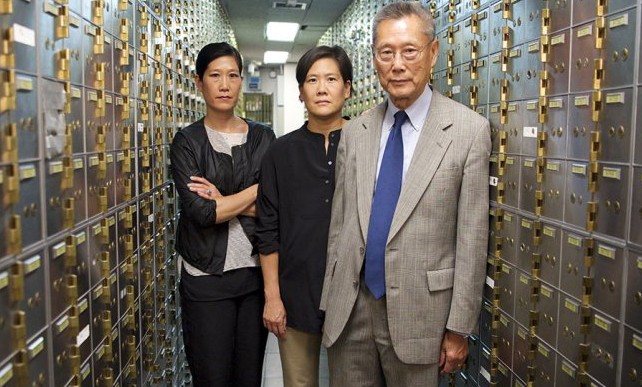
Nobody likes a bully, and the documentary Abacus: Small Enough to Jail tells the riveting story of an American family business bullied into a nightmarish fight for survival. We meet the members of family, the Sungs of New York, and relive their existential struggle. It’s a compelling story, well-told.
Thomas Sung founded the Abacus Federal Savings Bank, a small bank in New York’s Chinatown, and passed on the management of the bank to his daughters. The bank’s customers are almost all Chinese from the neighborhood. The bank management discover a corrupt loan officer, fire him and turn him in to regulators. But prosecutors go on to blame the whole loan department and then the bank leadership – and file criminal charges against the bank. Suddenly, the Sungs are in a fight for their professional lives.
The Manhattan prosecutor was looking for a scapegoat for the financial crisis of 2008. Let’s remember that the global crisis was caused by the biggest players in the American financial system. The very biggest financial institutions were guilty of overt corruption – the banks were packaging and selling worthless financial products and the credit rating agencies were falsely labeling them as valuable. Banks were making crazy, unsustainable and predatory home loans. Insured accounts turned out to be not really insured.
But those crooked big banks were “too big to fail” They were bailed out by the taxpayers and escaped accountability for their crimes. Here’s what is mind-boggling: to this day, the tiny Abacus Federal Savings Bank remains the ONLY bank that has faced criminal charges from the financial crisis. Hence the movie’s subtitle “Small Enough to Jail“.
Abacus: Small Enough to Jail comes from the documentarian Steve James, who directed Hoop Dreams, the masterpiece that both Roger Ebert and Gene Siskel picked as the best movie of 1994, as well as the more recent Ebert celebration Life Itself. Abacus is brilliantly sourced – James was able to get prosecutors, defense attorneys and even jurors on camera, along with the entire Sung family.
Getting to know the individuals in the Sung family is one of the pleasures of viewing Abacus. Let’s just say that it’s a mistake to take a family business to court when the whole family are lawyers.
Right at the beginning of Abacus, James makes an inspired choice – he matches the family patriarch and bank founder Thomas Sung with George Bailey from It’s a Wonderful Life. And the engrossing saga of the Sungs begins.

